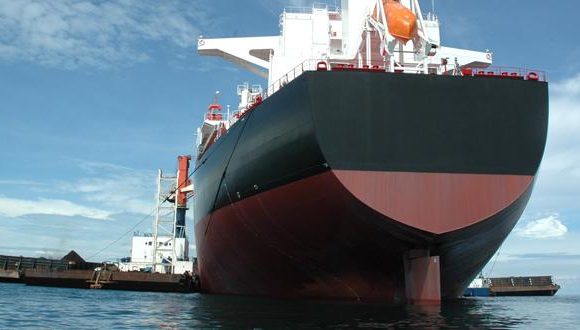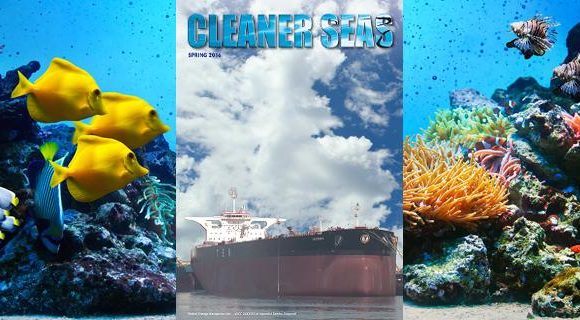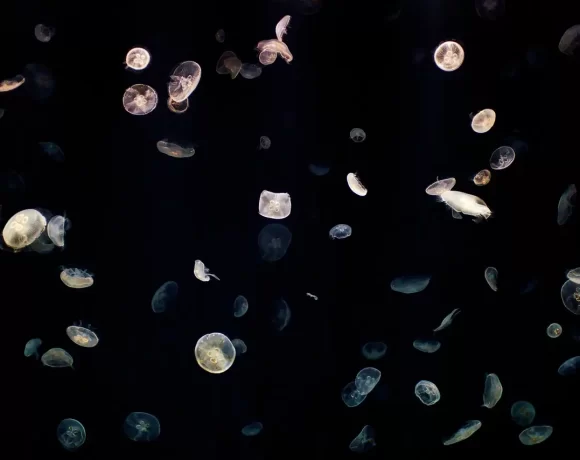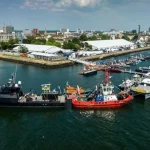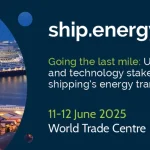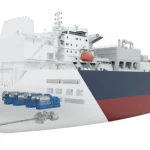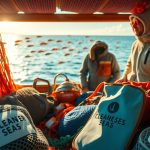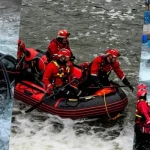Marine Ecology News Digest – April 2024
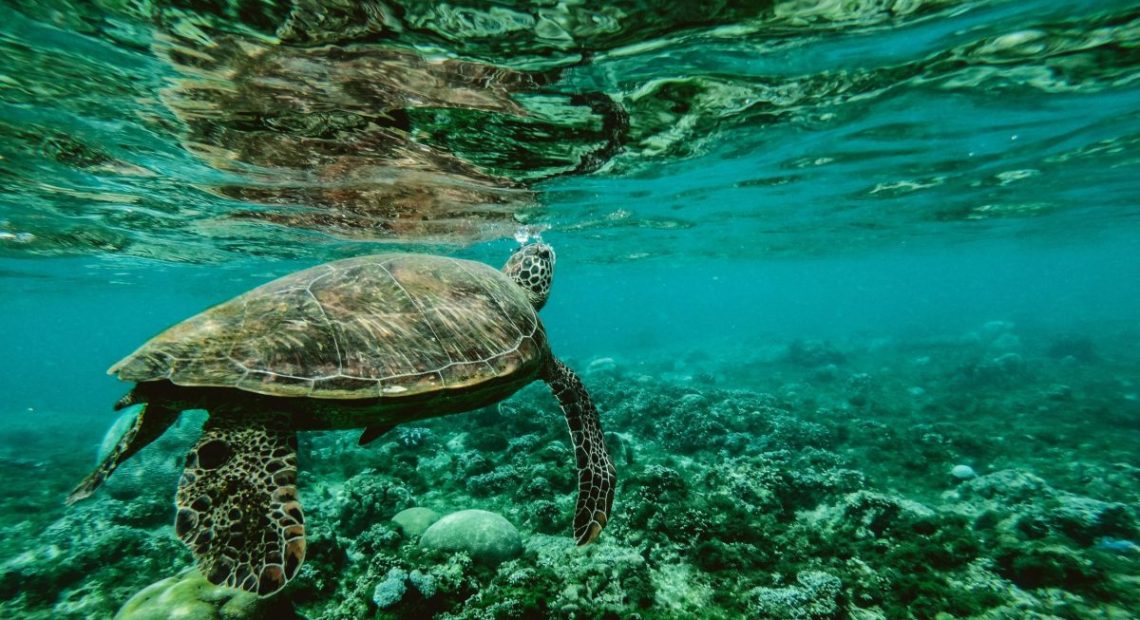
Global Concern
Coral Crisis is a Climate Crisis
The World Wildlife Fund (WWF) warns that coral reefs are facing unprecedented stress due to rising ocean temperatures. This global coral bleaching event could be the largest on record. (Source: WWF website)
Conservation Efforts
- A significant conservation victory establishes vast new marine protected areas in the Antarctic, safeguarding vital feeding grounds for whales, penguins, and other marine life. (Source: Mongabay)
- Coastal Communities Lead Successful Marine Conservation Efforts: A report highlights the importance of empowering local communities in managing and conserving marine resources. Collaborative efforts are proving successful in protecting vital ecosystems. (Source: WWF website).
- Community-Based Marine Protected Areas (CBMPAs): This approach empowers local communities to manage and protect marine resources within their territories. Successful CBMPAs demonstrate a collaborative effort between communities, NGOs, and governments. This model is proving effective in areas with strong cultural ties to the ocean, allowing local knowledge to be integrated with scientific expertise for sustainable management. (Source: The World Bank – https://data.worldbank.org/indicator/ER.PTD.TOTL.ZS)
- Ocean Acidification Mitigation Strategies: Ocean acidification, caused by increased CO2 absorption, is a growing threat to marine ecosystems. Research is underway to explore potential solutions, including: Ocean Alkalinization: Techniques are being studied to add alkaline substances to specific areas of the ocean to counteract acidification.
- Marine Protected Areas as Refuges: Establishing and strengthening marine protected areas can provide havens for marine life less vulnerable to acidification, allowing populations to recover and potentially repopulate surrounding areas.
- Fisheries Management & Sustainable Practices: Sustainable fishing practices are crucial for healthy marine ecosystems. This includes initiatives like – Quotas and Catch Limits and Regulating the amount of fish caught to ensure populations remain sustainable.
- Gear Restrictions: Banning or limiting harmful fishing gear that damages habitats or leads to bycatch (unwanted capture of non-target species).
- Marine Stewardship Council (MSC) Certification: This program promotes sustainable fishing practices and seafood traceability, allowing consumers to make informed choices. (Source: Marine Stewardship Council – https://www.msc.org/)
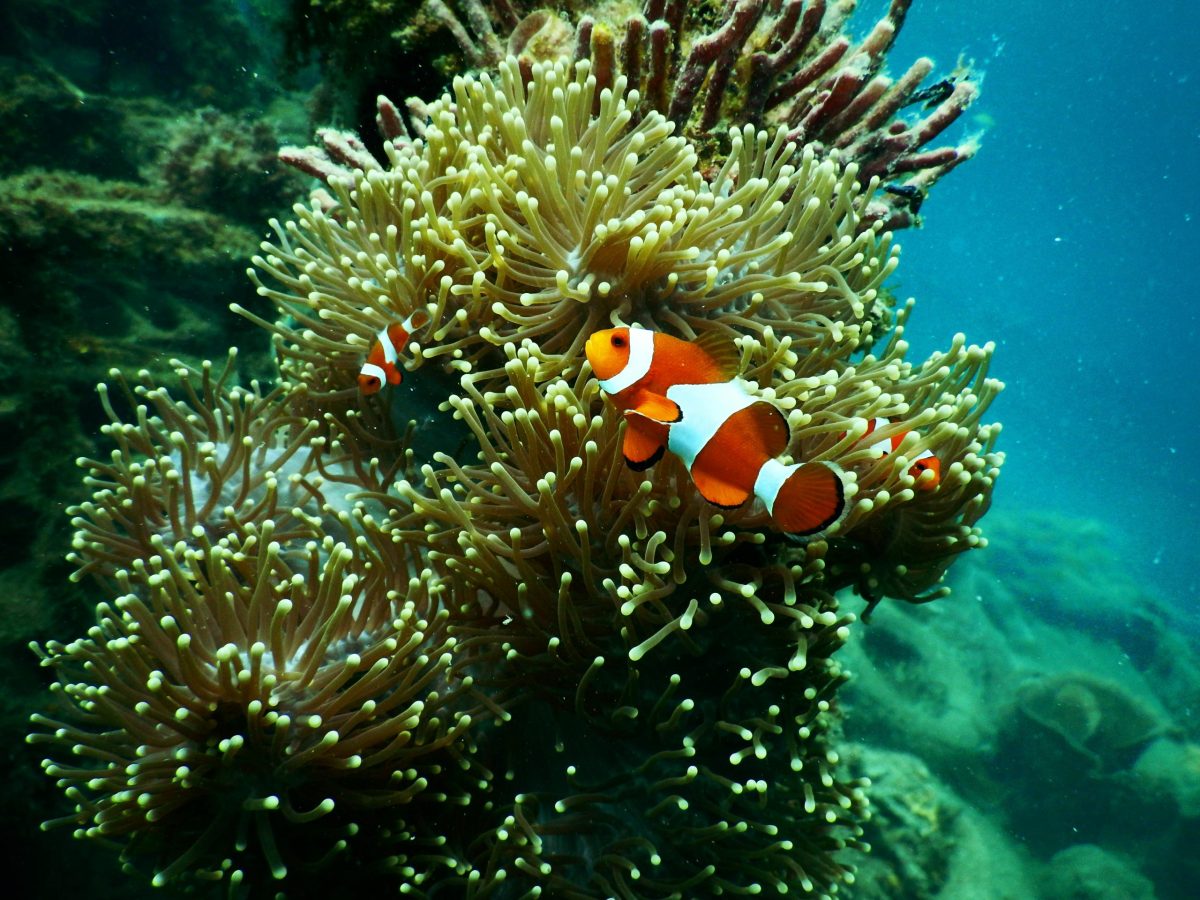
Research & Discoveries
- Study Reveals Decline in Fish Populations that Migrate towards Poles: Research suggests a worrying decline in fish populations that move towards cooler waters to escape rising ocean temperatures. This highlights the impact of climate change on marine migration patterns. (Source: ScienceDaily)
- New Placozoan Habitat Discovered in the Deep Sea: Scientists uncover a new habitat for a primitive marine animal called a placozoan. This discovery expands our understanding of deep-sea ecosystems. (Source: ScienceDaily).
- Microplastics in the Marine Food Chain: Research is ongoing to understand the impact of microplastics (tiny plastic fragments) on marine organisms. Studies are investigating how microplastics are ingested by marine life and the potential consequences for their health and ecosystems.
- Biomimicry for Ocean Conservation: Scientists are drawing inspiration from nature to develop innovative solutions for ocean conservation. For example, studying the filtering mechanisms of bivalves may lead to the design of more efficient methods for filtering pollutants from ocean water. (Source: Biomimicry Institute – https://biomimicry.org/)
- Deep-Sea Exploration: Advancements in deep-sea exploration technology allow scientists to access previously uncharted areas. These expeditions are uncovering new species and revealing the extent of human impact even in the deepest parts of the ocean. For instance, recent discoveries include new hydrothermal vent ecosystems teeming with unique life forms. (Source: National Oceanic and Atmospheric Administration (NOAA) – https://www.noaa.gov/)
Technology & Solutions
- New Technique May Help Scientists Stave Off Coral Reef Collapse: Researchers are developing innovative techniques to assist coral reef regeneration and potentially help prevent widespread collapse. (Source: ScienceDaily)
- Coral Larval Seeding: Techniques are being developed to cultivate coral larvae in labs and transplant them onto damaged reefs, accelerating the recovery process.
- Bioprinting Coral Reefs: This cutting-edge approach involves using 3D printing technology to create structures that provide a foundation for new coral growth.
- Marine Robotics & AI: Advancements in robotics and artificial intelligence are playing a crucial role in marine research and conservation.
- Autonomous Underwater Vehicles (AUVs): These unmanned drones equipped with advanced sensors are collecting vital data on ocean health, mapping underwater environments, and monitoring marine life populations.
- AI-powered Image Analysis: Researchers are using AI to analyse vast amounts of underwater imagery collected by cameras and drones. This allows for automated detection of specific species, identification of habitat types, and more efficient analysis of marine ecosystems.
- Citizen Science & Data Collection: Technology is democratising marine research by allowing the public to contribute valuable data.
- Mobile Apps: Apps enable people to record observations of marine life, such as sightings of specific species or pollution events. This data can be aggregated for large-scale studies.
- Environmental Sensor Networks: Sensor networks deployed in coastal areas collect real-time data on water quality, temperature, and other environmental parameters, providing valuable insights into ocean health.
Additional Resources
- Science Daily – Marine Biology News: https://www.sciencedaily.com/terms/marine_biology.htm
- Mongabay – Marine Ecosystems News: https://news.mongabay.com/list/oceans/
- WWF – Ocean News: https://ocean.panda.org/
References
- World Wildlife Fund (WWF) website
Mongabay: Huge New No-Fishing Zones Give Antarctic Marine Predators and Prey a Break - WWF website: Coastal Communities Lead Successful Marine Conservation Efforts (Report may not be readily available online, consider searching for a related WWF report)
- ScienceDaily: Study Reveals Decline in Fish Populations that Migrate towards Poles
- ScienceDaily: New Placozoan Habitat Discovered in the Deep Sea
- ScienceDaily: New Technique May Help Scientists Stave Off Coral Reef Collapse (Specific technique may not be mentioned, but the article discusses general advancements):

